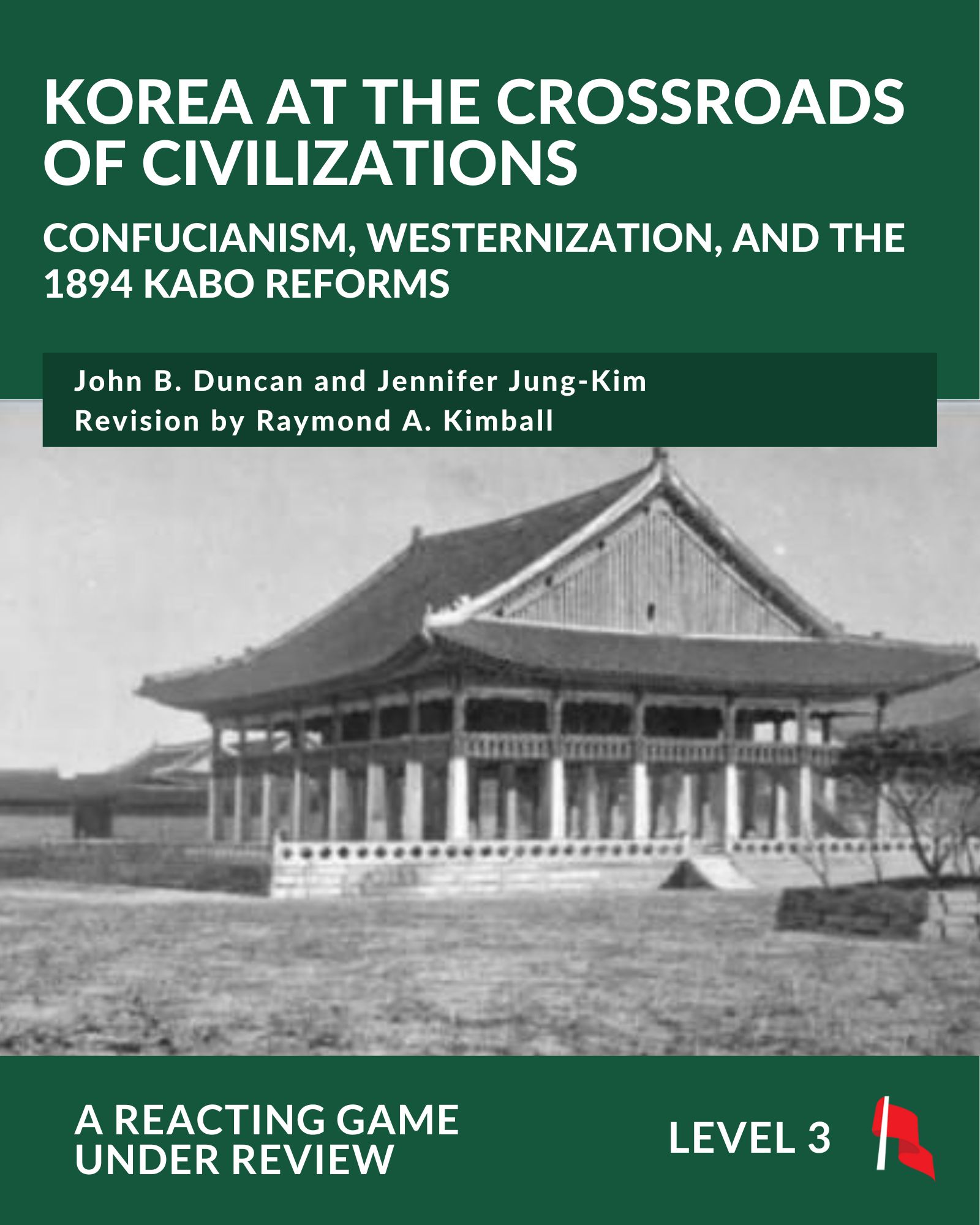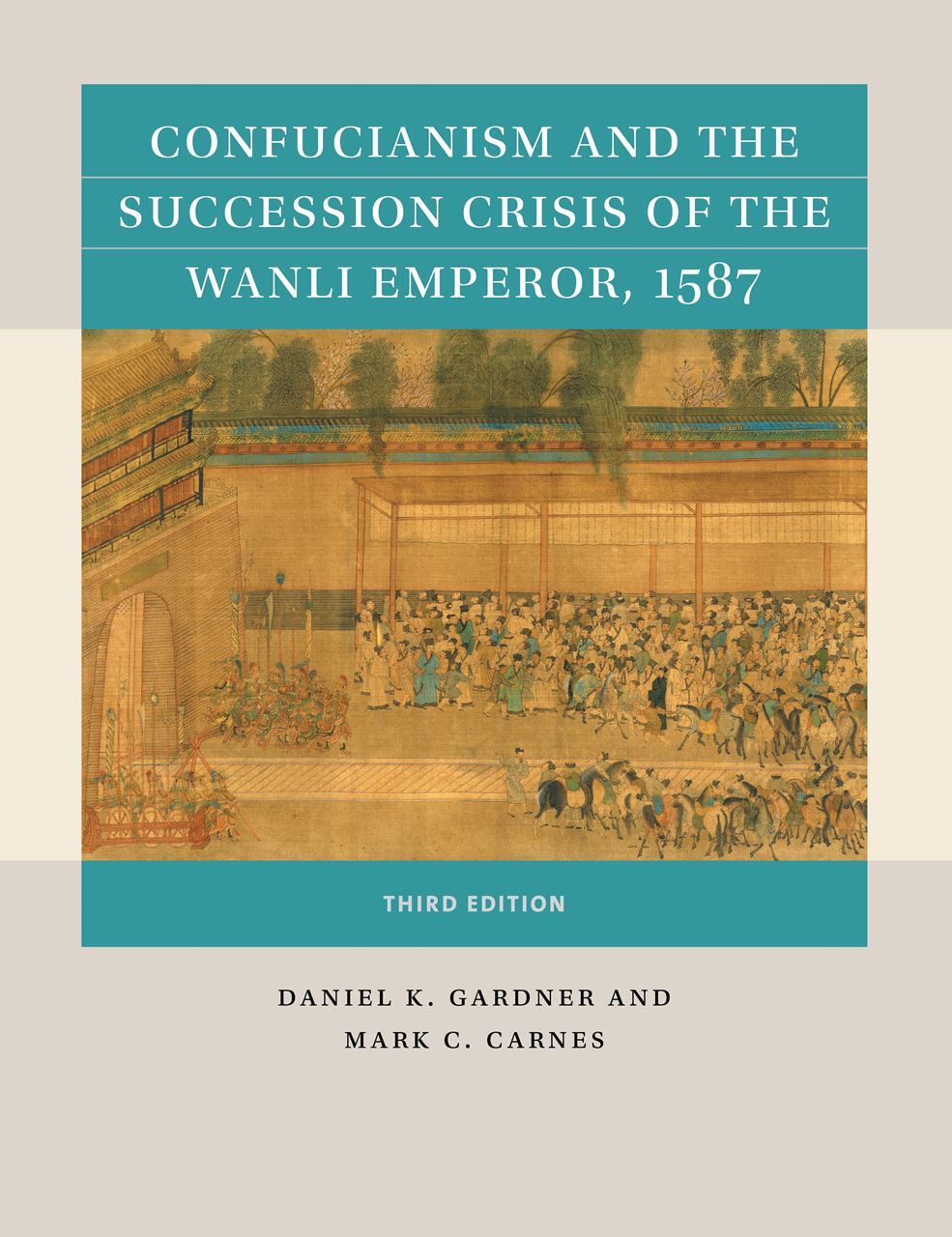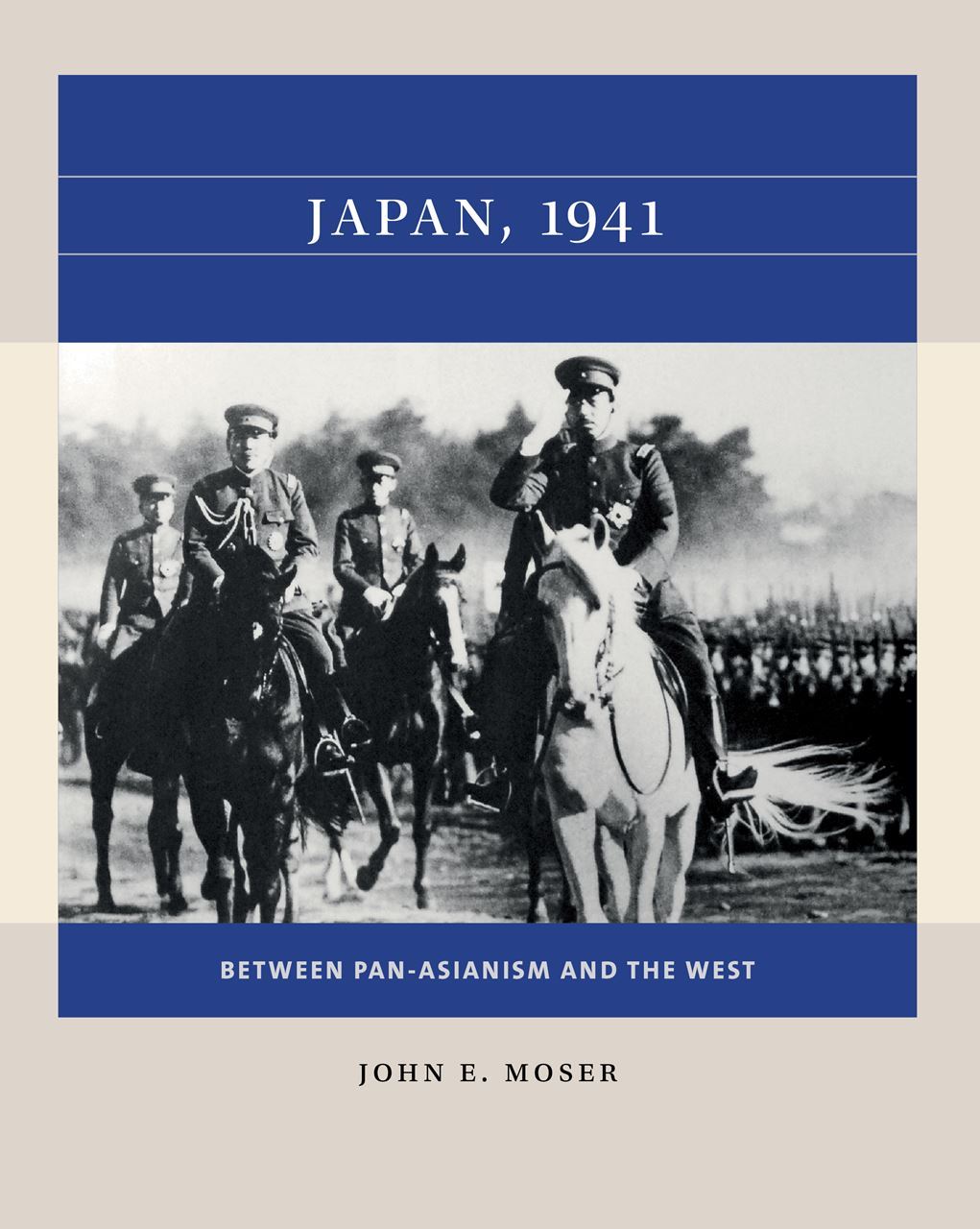 |

Play this game recently? | Radicals, reactionaries, and reluctant reformers rebuild Korea for the 20th century Korea at the Crossroads situates students in the great debates over reform that swept East Asia following the irruption of Western imperialism in the second half of the nineteenth century. The game is set in the Deliberative Council, a body established by the Korean court in the midst of the Sino-Japanese War to discuss and implement measures to restructure government, economy, society, and education. Members of the Deliberative Council represented a wide range of opinions. Those pushing for radical reforms included men who had studied in Japan under Fukuzawa Yukichi and men who had studied at schools in the United States. There was also a significant conservative Confucian group of the Eastern Way, Western Machines persuasion who, following the example of Qing China, sought to strengthen the traditional order by selectively adopting Western technology. The Council was presided over by the erstwhile isolationist, the Taewŏn’gun, who was also the father of King Kojong. The Council’s deliberations took place amid palace intrigue and foreign pressures. Students will have to consult a wide range of writings from Korea, including Yu Kilchun’s Observations from a Journey to the West, as well as key documents by Japanese and Chinese thinkers, in constructing their arguments for and against reform. This is a Level 4 game that is still under development but has been approved by the Reacting Editorial Board (REB) for general use. A detailed explanation of the editorial process and game levels can be found on our REB Page. |
Details
|
Using the Game
Class Size Class Time There are 5 modules (international relations, government, economy, education, society), so the instructor can choose which ones to include.
|
 GAME MATERIALS
GAME MATERIALS
Reacting Consortium members can access all downloadable materials (including expanded and updated materials) below. You will be asked to sign in before downloading. Basic game materials (Gamebook, Role Sheets, Instructor's Guide, and Handouts) are available to any instructor through the publisher.
Please Fill out the Permissions Request Form Before Using Korea at the Crossroads in Your Class!
Gamebook Students need a Gamebook, which includes directions, resources, and historical content
Updated January 2021.
| Role Sheets and Add'l Materials Students also need a Role Sheet, which contains biographical information, role-specific resources or assignments, and their character's secret victory objectives. | Instructor's Manual The Instructor's Manual includes guidance for assigning roles, presenting historical context, assignments, activities and discussion topics, and more. |
John Duncan
John Duncan is a retired professor of Korean studies at the University of California, Los Angeles. |
Jennifer Jung-Kim
Jennifer Jung-Kim received her Ph.D. in Korean history from the University of California, Los Angeles, where she currently teaches courses on East Asian history, including women's history and food studies. She has been an avid fan of Reacting since 1997, is co-author of the 1894 Kabo game, and a past Reacting board member. Jennifer won a 2021 UCLA Distinguished Teaching Award, which she credits largely to Reacting to the Past. She regularly teaches the Greenwich Village game in an Honors class and also teaches Reacting games in intensive summer classes for high school students. |
Raymond Kimball
Dr. Ray Kimball is the Founder and CEO of 42 Educational Games Coaching and Design, a service that helps higher ed faculty integrate game-based learning into their classrooms. He is the co-author of Eyeball to Eyeball, 1962: The Cuban Missile Crisis, and a co-editor of Teaching and Learning the West Point Way. He served for 10 years as a faculty member at the U.S. Military Academy, reaching the academic rank of Associate Professor. He holds a Doctorate of Education in Learning Technologies from Pepperdine University and Masters Degrees from Stanford University. | Reacting and Related Titles
|
Members can contact game authors directly if they have questions about using the game. We also invite instructors join our Facebook Faculty Lounge, where you'll find a wonderful community eager to help and answer questions.
|
|
|


